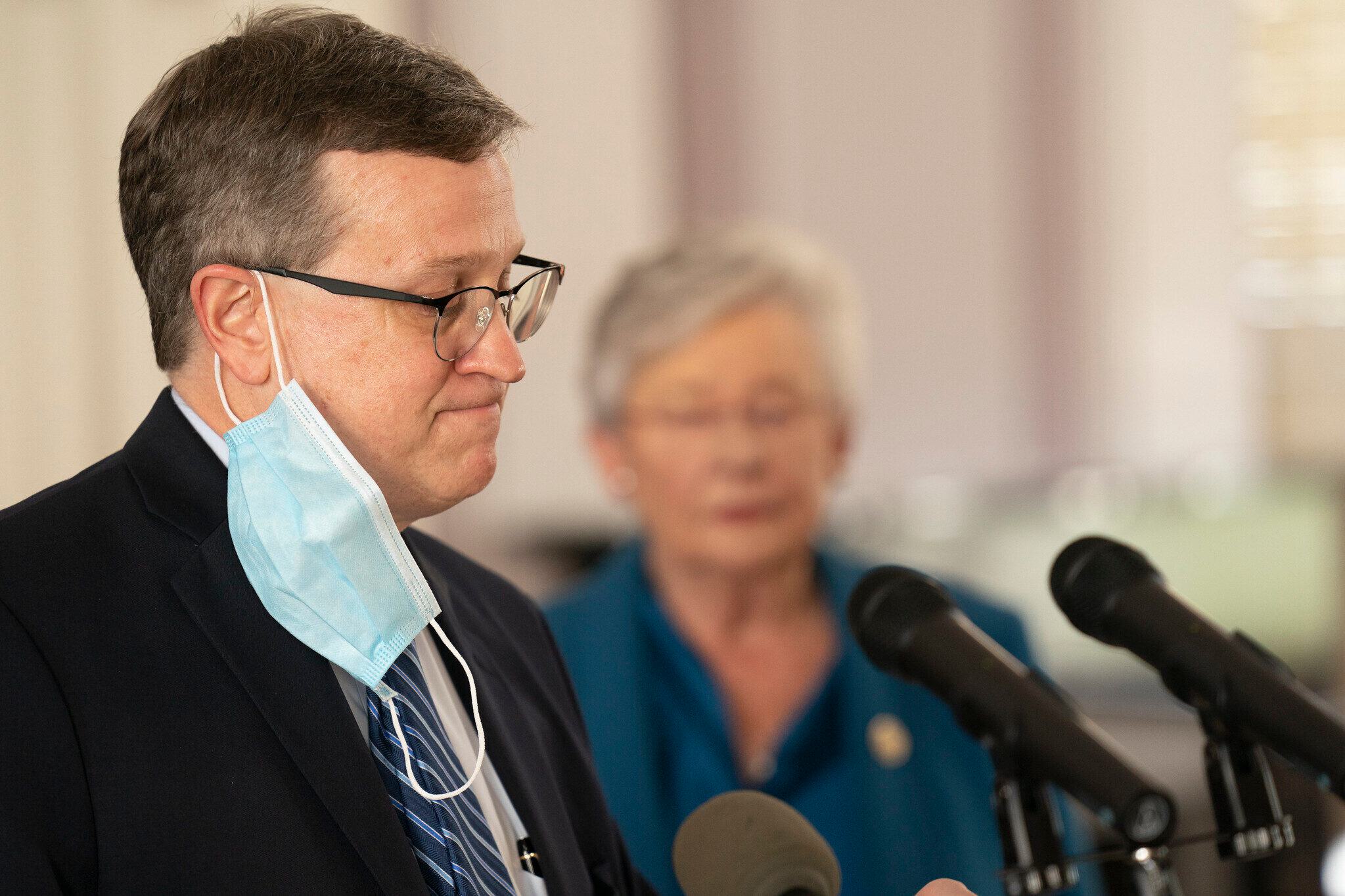An unusual feature of Alabama politics is the appointment of the State Health Officer – currently Dr. Scott Harris – by the Medical Association of the State of Alabama’s Board of Health.
But the COVID lockdowns have focused attention on states’ public health powers, and a bill changing this to gubernatorial appointment died in the legislature this year. But would gubernatorial appointment of the state health officer improve policy making in a future pandemic?
Let’s make it clear that only government officials should exercise the coercive powers of government, not private groups. Only the consent of the governed legitimates government, and consent must be explicit, typically through our elected representatives.
This immediately raises red flags for an industry appointed state official. Businesses should be regulated lightly but should not be determining who holds state offices.
Yet the State Health Officer did not exercise coercive powers unilaterally during COVID. Gov. Kay Ivey’s emergency declarations gave Harris’ decrees legal effect; whether the health officer is selected by the Medical Association, appointed by the governor, or elected by the people has only a secondary impact. A health officer not in sync with the governor would reduce the likelihood of the declaration or extension of an emergency.
Many health authorities are now seemingly distancing themselves from the COVID lockdowns, including Dr. Anthony Fauci, who recently denied shutting down businesses or schools. That’s technically correct, for the Centers for Disease Control (CDC), not Fauci’s NIAID, issued the public health guidance. State agencies like the Alabama Department of Public Health turned those recommendations from the CDC into binding rules during COVID.
Fauci also claims to have merely been giving public health recommendations, and that others had responsibility to balance public health against economics or education. Thus, if the costs of COVID lockdowns exceeded the benefits, Fauci would blame those responsible for the balancing.
What does this suggest about pandemic powers going forward? The narrowness of expertise poses a significant policymaking problem. Two factors drive this: the first is that the depth needed to attain expertise necessarily limits the breadth of focus; the second is bureaucracies aligned with the bands of expertise, namely public health bureaucracies staffed by persons trained in public health.
Economists are often the experts most likely to take a broad view. This is because our discipline begins by analyzing choices, which always have benefits and costs. Economists will naturally seek to identify the costs of lockdowns and how they compare with the benefits.
Governors were responsible for balancing the public health, educational, and economic consequences of COVID, assisted by other state officials. Unfortunately, many governors focused almost exclusively on public health. New York Gov. Andrew Cuomo’s claim that health measures saving even one life would be worthwhile exemplifies this single focus.
Even freedom-loving Americans might temporarily sacrifice to control a communicable and deadly disease. Yet even during a pandemic, government must reflect the consent of the governed, and emergency powers laws vesting authority exclusively in the governor suspend the balance of power normally ensuring meaningful consent.
Economist Friedrich Hayek offered guidance for emergency powers in “Law, Legislation and Liberty.” His insight involves separating the power to declare or continue the emergency from the exercise of power during the emergency. For states, this at a minimum should involve the legislature affirming the declaration, by a virtual special session if needed.
Citizens lack the expertise necessary to judge whether a pandemic justifies emergency responses. We would benefit from public health experts making this judgment on our behalf, but not the state health officer, who will be making pandemic policy. Ideally, we could have public health experts representing our interests - not those of the medical or pharmaceutical establishments - declare the emergency. How we might accomplish this is a question for another time.
Supreme Court Justice Neil Gorsuch recently warned about the dangers of unchecked COVID emergency measures. Our fundamental rights must be protected even during a pandemic. Having the governor appoint a state health officer will not correct the deficiencies of our emergency powers laws, but the debate might encourage reforms before the next pandemic.
Daniel Sutter is the Charles G. Koch Professor of Economics with the Manuel H. Johnson Center for Political Economy at Troy University and host of Econversations on TrojanVision. The opinions expressed in this column are the author’s and do not necessarily reflect the views of Troy University or 1819 News.
To comment, please send an email with your name and contact information to Commentary@1819News.com (Commentary@1819News.com)
Don't miss out! Subscribe to our newsletter and get our top stories every weekday morning.










